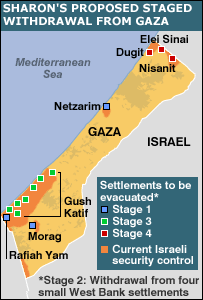UPDATES
What is really behind Israel’s worsening relations with Egypt and Turkey?
September 15, 2011 | Tzvi Fleischer

There is no question that Israel’s strategic environment at the moment is looking grimmer than it has in a while. Its long-standing good relations, at times something close to an alliance, with Turkey appear to be history. Meanwhile, following the Cairo embassy attack last Friday, it became clearer than ever that the cold peace that has prevailed between Israel and Egypt for more than 30 years – a core component of Israel’s security planning – is at serious risk. Given that virtually no public figure in Egypt appears prepared to publicly defend the Israel-Egypt peace, the best case scenario looks like being that the already cold peace will turn even icier. There is also a clear danger that Israel’s southern border could return to being the open conflict zone it once was.
There is a tendency to assume among many editorialists and pundits that this deterioration must have occurred because Israel has supposedly been intransigent, particularly in terms of offering insufficient concessions to the Palestinians.
Noted American journalist Jeffrey Goldberg has pointed out that this automatic, conventional analysis actually has it backwards. Israel is actually being pummelled in both Ankara and Cairo for the consequences of a unilateral concession it made – the withdrawal from Gaza in 2005.
He notes:
Israel’s crises with Egypt and Turkey are both rooted in an Israeli decision to relinquish Palestinian territory.
Forgotten History
Here is a bit of recent, though apparently forgotten, history: In 2003, the then-prime minister of Israel, Ariel Sharon, announced that Israel would unilaterally withdraw about 8,500 settlers from its 21 settlements in the Gaza Strip, and pull out its army as well. The territory would be handed over, in its entirety, to the Palestinian Authority.
In the summer of 2005, he executed the plan, ordering the Israeli army to expel the settlers. It would have been better, for many reasons, for Sharon to have negotiated this handover directly with his adversaries. But the fact remains that Israel gave the Palestinians of Gaza what they claimed they wanted: their territory, which they said would become part of their independent state.
How did Gazans respond? First, looters destroyed the vast settlement greenhouses that could have formed the basis of a new Gaza economy. Then, voters elected into power Hamas, a terrorist organization devoted to the annihilation of Israel. Gaza quickly became a launching pad for rocket attacks against Israeli towns.
In response, Israel blockaded Gaza to keep weapons from reaching its enemies. It was this blockade that pro-Hamas activists, many of them from Turkey, were trying to breach when their flotilla was boarded by Israeli forces last year. Nine activists were killed. The flotilla raid, and the subsequent collapse of relations between the two countries, can be traced in large part to Sharon’s decision.
Gaza and Sinai
In Egypt, the story is similar. The attack on the embassy in Cairo — which forced Israel to send air force planes to Egypt to rescue its diplomatic personnel — was part of an angry reaction to the accidental killing of at least three Egyptian soldiers last month. (The exact number killed is disputed.) The problem began when a group of terrorists, including some reportedly from Gaza, crossed the Israeli border from Egypt’s Sinai Peninsula and killed eight Israelis. The Israeli security forces, in pursuit of the terrorists, mistakenly killed the Egyptian soldiers. The Israeli government later formally expressed regret for the incident.
Most of the protesters in Cairo cared not at all about a terrorist invasion of Israel from Egyptian territory, or about the murdered Israelis themselves. Their only concern was what they saw as Israel’s criminal response.
Why, after decades of quiet, has the Egypt-Israel border become so tumultuous? Two reasons: The interim Egyptian government has lost control over the Sinai since the revolution, and Gaza, which borders the Sinai, has been transformed by Hamas into a weapons-importing and terror-exporting mini-state. And how did this come about? Sharon brought this about, by ceding Gaza to the Palestinians.
Goldberg goes on to note, correctly, that “this is not… an argument against territorial compromise” and Israel still needs to “find a creative solution to the problem posed by [the] continued occupation of much of the West Bank. But that job is made much more difficult by Israel’s enemies, who choose to ignore Israel’s last attempt at giving up territory.”
He might have added that it is not only Israel’s enemies but simplistic Western pundits who make peace more difficult. Ignoring history – such as what happened after the Gaza withdrawal – in favour of a simplistic assumption that Israel can automatically gain peace, security and universal acceptance by granting Palestinian statehood, makes a two-state peace less likely by convincing public and governments to neglect working on the real arrangements and pre-conditions needed to make genuine peace work.
Tzvi Fleischer
Tags: Egypt





